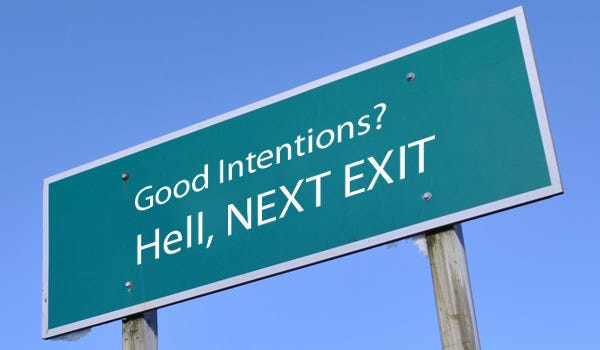"When you find yourself on the side of the majority - it's time to reform!"
Political Catch-22
My 4th grade teacher decorated her classroom with postcard-sized saying, witticisms and quotes. During breaks I would sometimes walk around the room reading these tidbits of historical perspective.
One that has stayed in my mind since is this post's title: "When you find yourself on the side of the majority - it's time to reform!".
I've always had the instinctual sense this was a true statement but it was only today I asked myself “why?”. Many of us were repeatedly admonished as children to stop asking “why?”. I wasn't a rebellious kid but since I was never given a reason as to why I shouldn't ask “why?” I’ve doggedly continued to this day (thankfully/unfortunately).
The funny thing about asking “why?” is that quite often an answer appears immediately from the ether. It may or may not be the right answer but at least it's something. Here's the answer I got today:
Most people follow what other people are doing. Therefore, once a movement gains a momentum in growth its principal has been lost. This is because following others has little relation with an understanding and commitment to a set of ideas. The word "popular” is therefore poetically synonymous with "rootless" (which may go some way towards explaining why popular things keep changing so often).
But it gets worse. By the time a movement has entered majority status it has almost certainly been co-opted by power (otherwise it would have been quashed). This is how power operates - to think otherwise is pure naiveté.
And so once you find yourself on the side of the majority you can be reasonably certain you are being used by the powerful to fulfill their objectives and not the objectives proclaimed by the group of which you are a member.
These observations may be amongst the most fundamental democratic political truisms possible.1 If so it reveals the dismal almost futile reality of democratic politics.
Of course this truism is only true for so long as power remains powerful. If the top of the hierarchy hold all significant weapons, wealth and influence; you can be pretty darn sure all significant political movements are sanctioned by power. If the best success your movement gets is screen-time for your celebrated representatives; this should tell you everything you need to know.
Assuming this line of reasoning is correct, “we, the people” are in a deep quandary. What are the mechanisms whereby we can have a meaningful voice in a system that so adeptly corrupts that voice?
Some have suggested the correct attitude is to avoid unnecessary and counterproductive confrontations with power and instead focus on developing a deep understanding of political dynamics such that when the power does finally crumble (as it inevitably eventually does) there is a well-conceived “backup regime” to take its place. This makes good sense but at the same time feels fundamentally complacent (particularly when you consider that the successful establishment of a backup regime is an extremely extra-long long-shot).2
Perhaps it's worth considering the fact that even the greatest powers of humanity are dwarfed by that of Nature. Our civilization appears to be on a collision course with the forces of Nature (likely due to our efforts to control those forces). We could be stuck with this decaying political structure until the day of reckoning.
Rather than devising pie in the sky schemes for political renewal we might better turn our attention to the things that really matter: caring for each other and the world around us, seeking and speaking the honest truth as we see it, pondering the mysteries of the soul, God (whatever your conception may be) and Nature.
I say “democratic” here because they only apply to efforts on the part of a population to martial political power.
For those who know who I'm referring to here - let's see how Urbit works out as a test case for Moldbug's backup regime aspirations.




https://www.ukcolumn.org/article/accelerating-toward-dark-enlightenment🙈🙉🙊